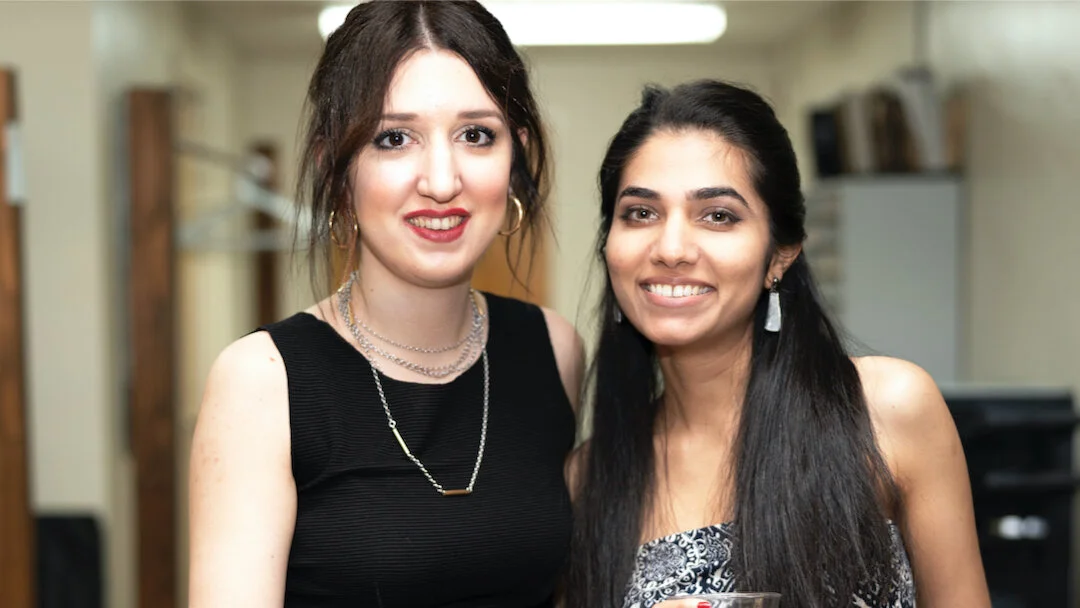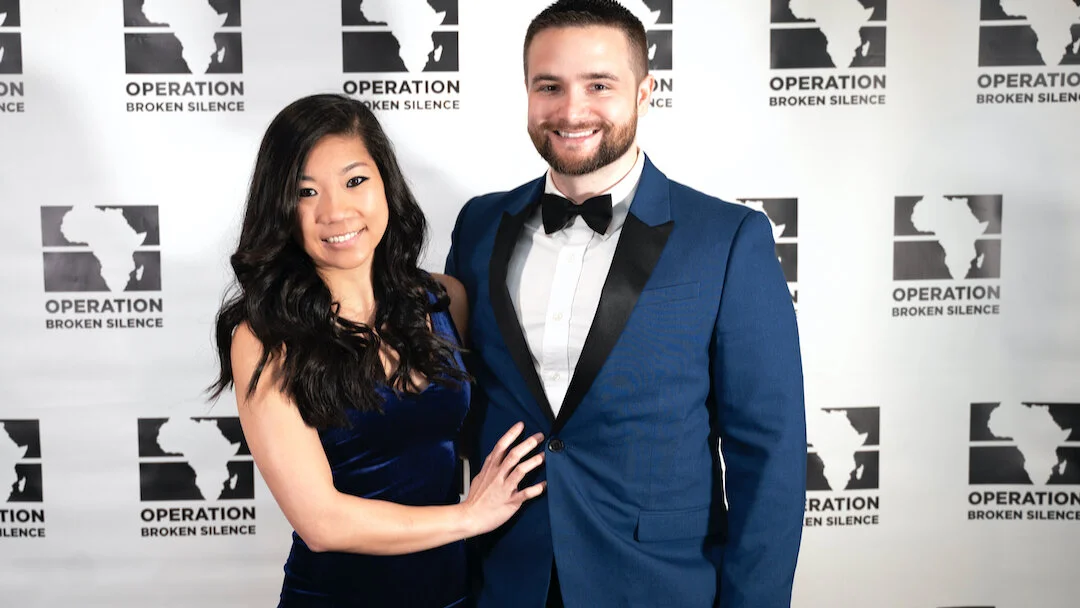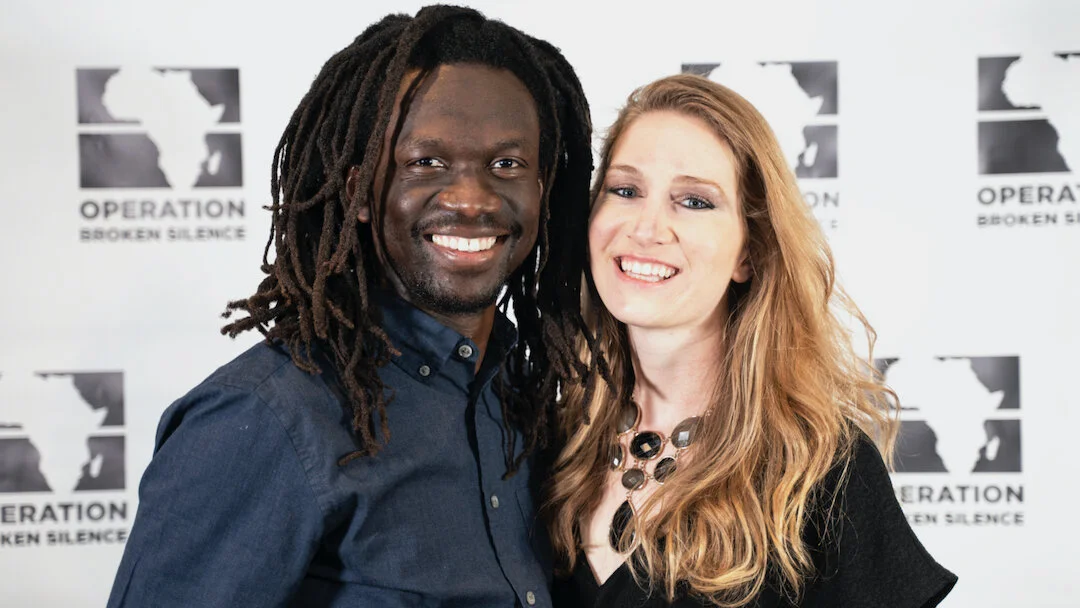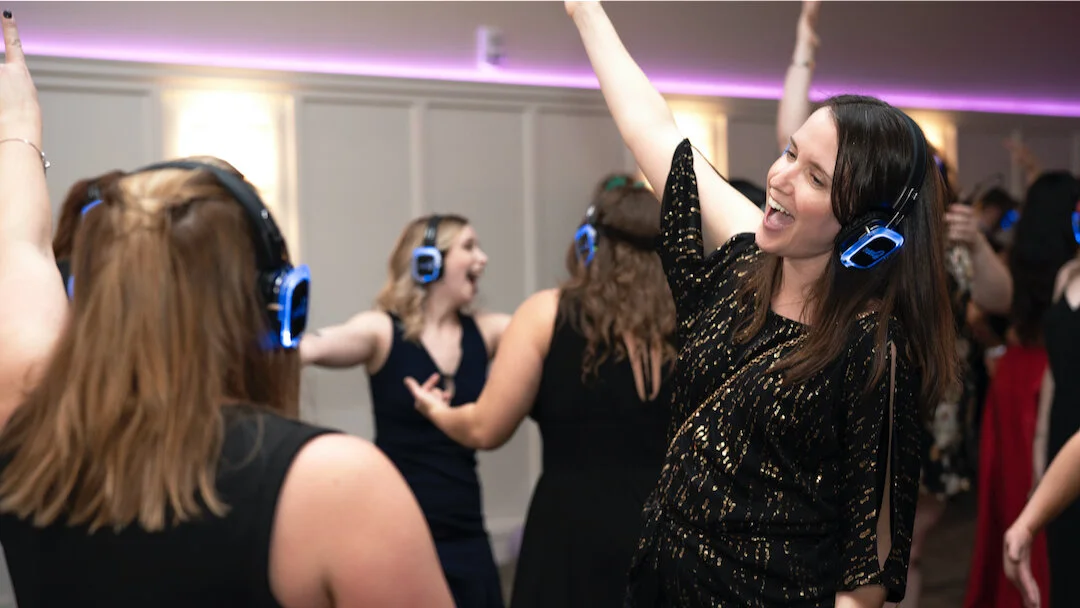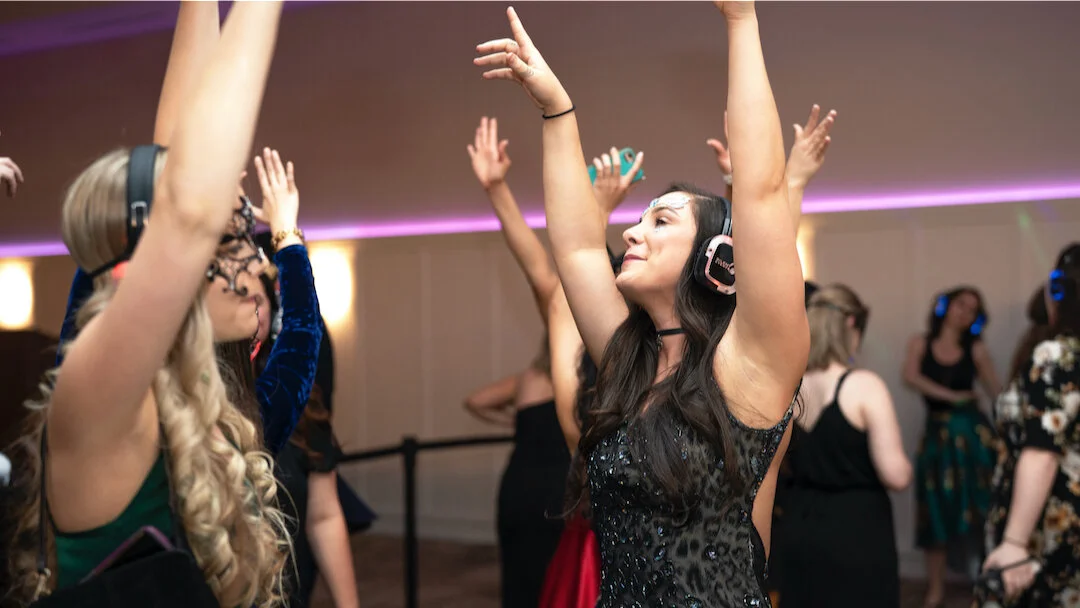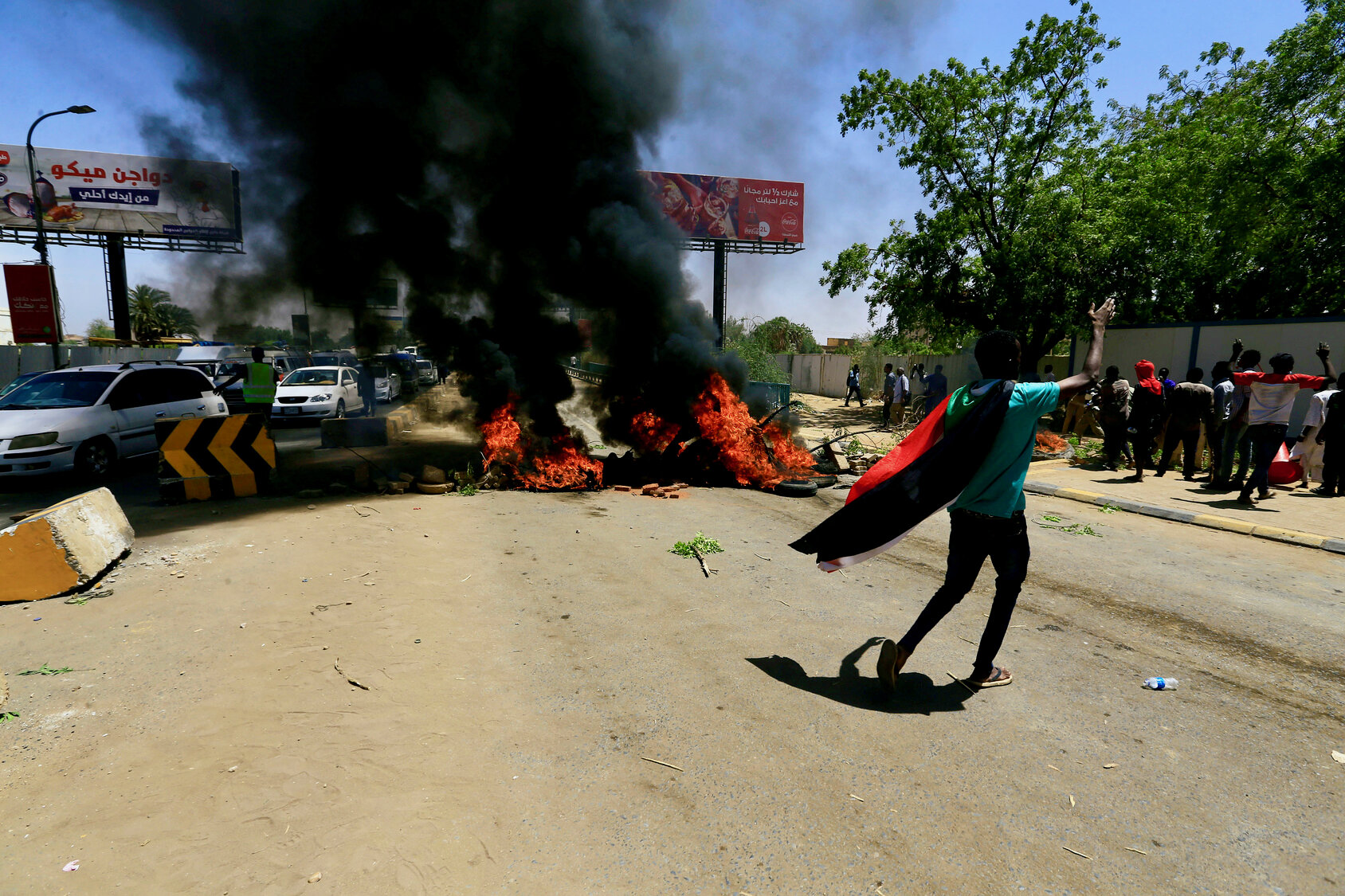News & Updates
Check out the latest from Sudan and our movement
7th Annual Gala Results
See what you accomplished at our annual Gala.
On March 23, 2019, 321 of our supporters gathered at The Memphis Grand Carousel to celebrate and empower teachers and students at the high-performing Endure Primary and new Renewal High Schools in Yida Refugee Camp, South Sudan.
This marked the 7th year for our annual Good People Good Beer Gala, and you showed up looking great in our Masquerade theme. Here's what you accomplished in 3 hours:
This year marked our biggest yet. You showed up with friends and family to celebrate the teachers and students at Endure Primary and Renewal High Schools in Yida Refugee Camp, South Sudan. You drank, ate, gave, and danced the night away. Simply put, you brought the magic. You were a part of something bigger than yourself for a few hours.
Here are a few of our favorites from the evening:
We served 5 tasting brews that ranged from a hoppy lager brewed in the Appalachian Mountains to a bright blonde brewed in sunny California . This year's kegs were provided by local favorite Wiseacre, with the food coming from Pontotoc Lounge, Gray Canary, Restaurant Iris, The Arcade, Ciao Bella, and Blue Nile.
And your votes are in! This year's favorite brew was Golden Road Brewing's Hollywood Blondie.
This year we also added in two themed cocktails inspired by our friends in Sudan and crafted with ingredients from the region. A special shoutout to our title sponsors Bar 409 and and Pontotoc Lounge for making incredible drinks!
This year's Gala was chaired by the wonderful Kellee Stokesberry! Thank you to this year's talented Gala Committee members: Megan Barlowe, Sara James, Jacob Merryman, Samantha Stack, Kindle Vickers, Jordan Vrbas, and Ed Waugh.
Thank you to our wonderful volunteers who made the evening possible! Hannah Anderson, Caroline Borron, Renna Cavness, Gracie Coke, Sarah Conte, Lynda Flowers, Olivia Frantz, Jacob Geyer, Sarah Greenspon, Hope Gribble, Stephen Hackett, Chad Irwin, Erika Kinzer, Christina Kyriakopoulou, Alexis Lynn, Shreya Makwana, Kristin Marshall, Charlie McCarthy, Laura Megan, Leslie O’Barr, Lauren Reed, Aminah Ricard, Rhett Rogers, Emilie Rogers, Michael Seebeck, Jessica Seebeck, Susan Seebeck, Shawn Sigler, Brianna Sigler, Ryan Strain, Marta Tetzeli, John Tetzeli, Gabriel Tetzeli, Marci Vrbas, and Jordan Vrbas.
And a special shoutout to this year's sponsors! Without your generous support, this event would not have been as magical as it was:
April 2019 Mother of Mercy Hospital Update
A recent update from Mother of Mercy Hospital in the Nuba Mountains of Sudan.
In October 2016, Operation Broken Silence launched the Heart of Nuba Campaign alongside of the Take Heart Foundation. This online fundraising movement provides support to Mother of Mercy Hospital in the war-torn Nuba Mountains of Sudan. This is an update on how your fundraising and giving is leading to real results at this special healthcare facility.
Background
People in the Nuba Mountains of Sudan have been living in emergency conditions since June of 2011, when the government of Sudan launched another genocidal war against their communities. The Bashir regime has officially banned all aid and media organizations from the Nuba Mountains in an attempt to cover up their war crimes.
A fragile ceasefire is barely holding together in the Nuba Mountains. There are recent reports of targeted government attacks in a few frontline areas, as well as an uptick in regime warplanes flying overhead and troop buildups in government-controlled areas. While no actual aerial bombing has occurred, these bomber flights do disrupt daily life at farms, schools, and markets since people do not know if the area they are in is about to be targeted or not.
In the heart of the warzone sits Mother of Mercy hospital, the only referral hospital in the region. This life-saving facility is led by American Dr. Tom Catena and an incredible local Nuba staff. They refuse to leave and do their best to save lives underneath the shadows of government warplanes, sometimes treating over 400 patients a day. Access to basic medical supplies is extremely limited and the hospital is frequently in a financial crisis. The team at Mother of Mercy Hospital depends entirely on private fundraising and donations to treat the wounded and train the staff.
Securing funds and resources for the hospital through our online fundraising campaign is one of our organization's top priorities. You can watch the campaign trailer for Mother of Mercy Hospital to see what this actually looks like on the ground:
Beginning in 2016 with the launch of The Heart of Nuba Campaign, Operation Broken Silence began supporting operations at Mother of Mercy Hospital. The campaign is in partnership with the Heart of Nuba documentary film and the Take Heart Foundation, which exist to support the incredible work being done at the hospital.
To date, 32 fundraisers and 10 fundraising teams have raised over $46,000 from 203 donors through their fundraising pages for the hospital! The funds you are raising through the campaign are sent to our partner the Take Heart Foundation, which exists to support Mother of Mercy Hospital. Great work! And here is an update from Dr. Tom:
Dear Friend,
It’s 6 PM on a Thursday evening and I’m asking the clinical officer {physician assistant} interns how many more patients are remaining to see me – “fifteen” they say, and the work continues. We had been at it since 7:30 AM by first seeing 300 plus patients on rounds before starting in clinic at 12 noon. The interns have just finished school and are long on enthusiasm but short on experience and practical knowledge. They can help on the rounds and in clinic but only to a certain extent. I get somewhat discouraged – when will I get some relief? Who will come to carry on with the work?
However, it’s times like these that I have to remind myself how far we have come since we opened the hospital 11 years ago. We started with six expatriate nurses and 15 local Nuba staff. The most highly educated of the Nuba had only finished primary school and there were perhaps only a few high school graduates in all of the liberated areas of Nuba. The ‘original fifteen’ had to be taught everything from how to get a patient’s weight to how to give an injection and start an intravenous line.
We now have 110 Nuba nurses of whom around 20 have nursing diplomas from accredited nursing schools. We have nine physician assistants, five laboratory technicians and two nurse anesthetists – all from the Nuba Mountains. We have four in medical school, two in pharmacy school, another in anesthesia and another in an MBA program. In a year’s time, we’ll have the first Nuba doctor who was born and raised in the rebel held areas of Nuba Mountains come back to serve his people. Even now, when we wanted to expand our immunization program to cover most of the Nuba Mountains, we had to train dozens of people in how to dose and administer the basic set of vaccines. In a sense, we’ve had to create a rudimentary health system from scratch.
This has been long and painstaking work and has involved the efforts of many dedicated individuals but none of this would have been possible without the help of our many generous partners. We are a very ‘lean’ organization with a small number of people carrying out multiple administrative tasks in order to free up the resources for the population that we serve. With your help, we shall continue to take care of the beleaguered people of the Nuba Mountains well into the future.
Dr. Tom Catena
Our team here at Operation Broken Silence and our friends at Take Heart Foundation want to thank each of you for supporting the incredible work being done every day at Mother of Mercy Hospital. Here are a few ways you can remain involved.
April 2019 Endure Primary School Update
An update from the Endure Primary School in Yida Refugee Camp.
In 2015, Operation Broken Silence launched the Endure Campaign, a fundraising movement focused on sponsoring the Endure Primary School in Yida Refugee Camp, South Sudan. This is an update on how your fundraising and giving is leading to real results at this special school.
Background
People in the Nuba Mountains of Sudan have been living in emergency conditions since June of 2011, when the government of Sudan launched another genocidal war against their communities. The Bashir regime has officially banned all aid and media organizations from the Nuba Mountains in an attempt to cover up their war crimes.
A fragile ceasefire is barely holding together in the Nuba Mountains. There are recent reports of targeted government attacks in a few frontline areas, as well as an uptick in government warplanes flying overhead and troop buildups in government-controlled areas. While no actual aerial bombing has occurred, these bomber flights do disrupt daily life at farms, schools, and markets since people do not know if the area they are in is about to be targeted or not.
Just south of the Nuba Mountains is Yida Refugee Camp, which sits a few miles inside of South Sudan's northern border. Yida is one the primary places displaced and persecuted Nuba civilians have fled to over the past several years. Current estimates place Yida's annual population, which can fluctuate quite a bit, between 50,000-60,000 people.
One of the largest demographics in Yida is children under the age of 14. Despite this reality, there are only a handful of schools in Yida that receive little to no outside assistance. This has sparked a deepening education crisis that is threatening the next generation of Nuba leaders and their futures.
Building and supporting classrooms, paying teacher salaries, and ensuring that children have access to a free education is one of our organization's top priorities. You can watch the campaign video for The Endure Primary School to see what this actually looks like on the ground:
Beginning in 2015 with the launch of the Endure Campaign, Operation Broken Silence began supporting four small classrooms in Yida Refugee Camp that were on the verge of closing. Since then and entirely because of your fundraising and giving, this school now has ten classrooms led by twelve Nuba teachers, a principal, and two support staff. Every week they teach more than 800 students who have fled from the Nuba Mountains. Some of these children have lost their parents or been separated from them due to the Sudanese government's war, so the school is the only structured place in their lives.
Operations at the school continue to go well! A few weeks ago, 97% of P8 students passed a required exam, which means the school remains one of the top-performing in the area.
The school's new, small sports program that includes male and female soccer teams and male and female volleyball teams continues to run well. Games regularly draw in small crowds from the surrounding community in Yida. And the small student choir at the school continues to tour around Yida from time to time singing traditional Nuba songs. Here are a few recent photos from the school:
We've been talking quite a bit about the new high school that our education partner has soft-opened in Yida with our support; however, there are still some needs that are unmet at Endure Primary. This includes new chalkboards to replace aging ones in roughly half of all classrooms. More tarps are needed as well to help prevent weather damage during the rainy season. The security fence that started getting added in earlier this year is still incomplete and requires extra funding.
While Endure Primary is one of the top performing in the area, textbooks remain a huge need at the school, and every other school in Yida for that matter. A curriculum change that occurred a while back transitioned the primary teaching and learning language to English for schools in Yida, which means Arabic will have to be reintroduced back in as a seperate series of classes at some point. And newer teachers are in need of some additional training so they can better serve their students.
Progress rarely occurs in Sudan overnight; however, becuase of your fundraising and giving the past several years, the Endure Primary School is in a much better place today than it was when we first met our Nuba education partner. The teachers and students have taken your support seriously and made it what it is today. On behalf of them, our Nuba education partner, and our small staff, thank you for joining us on this journey.
Movement Spotlight: Megan Barlowe
A recent story from our movement.
Operation Broken Silence has a small staff, but with the help of our awesome movement, we’re able to make big waves to empower the people of Sudan. Some of the most involved, enthusiastic members of our movement are our event committee members based in Memphis, TN!
We recently had one of our Gala Committee members, Megan Barlowe, go above and beyond on her personal fundraising goal for our education program by organizing and hosting a benefit concert at Growlers.
“What first inspired me to host an event like this was my passion for the organization. I was moved to tears when I saw a photo exhibition showing the turmoil the Sudanese people in Yida Refugee Camp are facing. That's what made me want to figure out a way to help! Once I became a member of the gala committee, I had a fundraising page, and I began reaching out to people I knew to donate to the page. Throwing a benefit concert was an idea that came to fruition because I wanted to do something unique to me. As a music business student at the University of Memphis, I'm surrounded by talented musicians with experience performing. The original idea was to have a house show, but then I thought we could make it bigger than that, especially with the supportive local venues Memphis has to offer.”
Megan reached out to the network closest to her- her friends- and they generously gave their time and talents to the cause! Andrew Myle, Ally and the Walrus, Phillip Bond, Jordan Occasionally, Compton McMurry, Dylan Amoré, Estes, and Good Company all came to perform, showcasing a diverse variety of music genres and styles. Each one of them brought something different to the stage, and the audience received and reflected that-- you could see everyone dancing, listening, mingling, and having a blast all night long!
Together, they all used Facebook and social media to promote the event. Megan also reached out to Stacy McIntyre for professional help and Will Calvert from Tennessee Industrial Printing created a poster for them with the photos of all the artists!
When asked what she learned from this experience, Megan said:
“I learned that it can be affordable to book venues! Also, people are more generous than I ever imagined, and if they get to do what they love to benefit a cause like OBS, they'll do it without hesitation. Something I already knew that was intensified by hosting this event is that it's incredibly fulfilling to help those in need. All of the money we raised is going to support the education of children in the Yida Refugee Camp, which is gratifying.”
The benefit concert had an incredible turn out and raised over $1,400 for the Endure Primary and Renewal High Schools in Yida! Thank you to Megan and all the artists involved for using your talents and community to empower Sudanese students and teachers!
If you have an awesome group of friends or colleagues who would also like to host an event, like a benefit concert, documentary screening, dinner party, or game night, you can email me at atetzeli@operationbrokensilence.org and I can help you with the best fundraising and planning practices!
March 2019 Renewal High School Update
A recent update from our newest program.
In 2018, Operation Broken Silence began fundraising for a new high school in Yida Refugee Camp, South Sudan. This is an update on how your fundraising and giving is leading to real results on the ground.
Background
People in the Nuba Mountains of Sudan have been living in emergency conditions since June of 2011, when the government of Sudan launched another genocidal war against their communities. The Bashir regime has officially banned all aid and media organizations from the Nuba Mountains in an attempt to cover up their war crimes.
A fragile ceasefire is barely holding together in the Nuba Mountains. There are recent reports of targeted government attacks in a few frontline areas, as well as an uptick in government warplanes flying overhead and troop buildups in government-controlled areas. While no actual aerial bombing has occurred, these bomber flights do disrupt daily life at farms, schools, and markets since people do not know if the area they are in is about to be targeted or not.
Just south of the Nuba Mountains is Yida Refugee Camp, which sits a few miles inside of South Sudan's northern border. Yida is one the primary places displaced and persecuted Nuba civilians have fled to over the past several years. Current estimates place Yida's annual population, which can fluctuate quite a bit, between 50,000-60,000 people.
One of the largest demographics in Yida is children under the age of 14. Despite this reality, there are only a handful of schools in Yida that receive little to no outside assistance. This has sparked a deepening education crisis that is threatening the next generation of Nuba leaders and their futures.
Building and supporting classrooms, paying teacher salaries, and ensuring that children have access to a free education is one of our organization's top priorities. You can watch the campaign video for The Renewal High School to see what this actually looks like on the ground:
The first classes at Renewal High School soft-opened on February 1, 2019. Since then, the school has continued to add more classes and now includes English, mathematics, chemistry, physics, biology, business, geography, history, agriculture, sports, music, and art classes.
Classroom construction and starting supply needs at the school have cost $4,587 so far. Similar to the Endure Primary School that we sponsor in Yida, the 6 classrooms and single teacher office were built largely from local materials to help keep costs down. Flying building materials into Yida is incredibly expensive, so using sun-dried bricks and locally-sourced wood keeps costs down. It's nothing glamorous, but it gets the job done.
As far as next steps go with regards to construction, the school still needs another 2 classrooms, a science lab, and what will be Yida's first library built as soon as possible. Estimated budgets for these additional facilities are being compiled now. Additionally, our Nuba education partner needs to build a lecture hall in 2020 that can be used for teacher and community training.
Renewal High School is staffed by a principal, secretary, and 12 teachers. Currently there are 120 students who have enrolled at the school as part of the soft-opening. Attendance will continue to rise throughout the year as additional resources arrive. In keeping with our mission of empowering the Nuba people directly, the school's entire staff and all of the students are from the Nuba Mountains.
Additional students not enrolled in the school are showing up every day in hopes of being able to get in. All but one of the other schools in Yida are primary schools, so the Renewal High School is one of the only secondary educational institutions available to Nuba students in the refugee camp.
While the school has soft-opened, there are still quite a few material needs that need to be met as soon as possible, including:
A small laser printer
More chalkboards
Musical instruments
Sports equipment (specifically soccer and volleyball related items)
Basic resources like pencils, paper, etc.
Lab equipment, books, and other supply needs will appear further down the road. Right now though, our focus is getting the school the basic items it needs that can be used in core classes.
Since we announced that our Nuba education partner was preparing to open a new high school in Yida, 93 fundraisers, 260 donors, and 12 monthly recurring givers have worked together to fund the startup costs of The Renewal High School.
We need to raise $3,550 a month to keep the current staff employed at the school. Ideally, this funding really needs to be provided by monthly givers so that the teachers have sustainable support and can focus 100% on serving their students.
Renewal members are currently giving $710 a month to support the staff. We need 82 more individuals to give $35 a month for the team at Renewal High to be fully supported.
Amazing work so far movement members! Below are some specific ways you can join our efforts to ensure that the Renewal High School becomes as successful as Endure Primary now is.
It's Time To Panic About U.S. Sudan Policy
An update on the situation in Sudan.
December 19, 2018 will go down as a pivotal day in Sudan's long history. But the mass public protests that began against the Bashir regime on that day are coming under increasing threat.
Over the past several weeks the protests in Sudan have grown larger, become more organized, and spread further across the country. Sudanese dictator Omar al-Bashir has overseen his vast network of oppressive security forces as they have shot unarmed Sudanese civilians, fired tear gas into hospitals, and arrested and tortured hundreds, if not thousands, of peaceful protesters, journalists, and doctors.
The recent events unfolding in Sudan have garnered the most international news coverage on the governance crisis plaguing the country in several years. Largely lost in the mounting news coverage is a piece by New York Times columnist Nick Kristof, one of the few international reporters who has continually written and visited Sudan's conflict areas as the years have gone by. You can read the article here, but the title says it all: Marching Toward a Massacre.
As Kristof notes, he has personally witnessed the ruthless brutality of the Sudanese government, including the murder of children and the destruction of entire communities by Bashir's warplanes and militias. For those of us who have slipped into the genocide-ravaged regions of Sudan and witnessed the regime's crimes firsthand like Kristof has, our fear is that Bashir is about to unleash some of the violent tactics he has previously used against millions of Sudanese in Darfur, the Nuba Mountains, and Blue Nile. Only this time it will be in Sudan's cities, where populations are larger and more concentrated, and where there is no armed opposition to provide some degree of protection to ordinary Sudanese who deserve real change.
Bashir Is Preparing For His Next Atrocity
We know the next massacre in Sudan is coming because Bashir and his enablers have always operated out of the same playbook. The dictatorship's targeted campaigns of oppression, wars, and genocides have never started overnight. The warning signs of the regime's next atrocity have almost always been apparent weeks and months before they began. Let me provide an example before returning to the current situation.
In January of 2011, the Satellite Sentinel Project released the first satellite imagery showing the Sudanese government ramping up military deployments in and near the Nuba Mountains in South Kordofan state, which sits just north of the Sudan-South Sudan border. In the coming months, more satellite imagery would be released showing further build-up and troop movements, as well as early government attacks on the Nuba people.
Six months of mounting warning signs later, the Bashir regime went on a three day targeted killing spree in the state capital of Kadugli. The mass grave sites Nuba victims were buried in remain under government occupation today, so it is still unknown how many hundreds, if not thousands, of people were killed. Following the slaughter in Kadugli, the Bashir regime began a new, years long campaign to drive the Nuba people off their land through direct military attacks, blocking of humanitarian aid and media access to the region, and other similar genocidal actions.
Today, similar warning signs that another atrocity is about to be committed are mounting at an alarming rate in major Sudanese cities, specifically in the capital of Khartoum.
On February 22 and at a press conference he was expected to announce his resignation at, Bashir instead declared a one year state of emergency, dismissed top government officials, and sacked regional governments. Bashir is refilling leadership positions with military men, an ominous sign that the regime's crackdown is about to worsen.
Large contingents of government militia have been arriving in cities for weeks now, and that trend shows no sign of slowing down. Government attacks against unarmed protesters, be it in the streets or in their homes, have been taking place since December and continue to escalate. Just a few days ago, Bashir issued new emergency decrees that banned public gatherings and protests, placed bans on trading subsidized fuel products, and put new regulations on trading and transporting foreign currency and gold. Government forces now have free reign to seize property and raid homes without warrants. And the state of emergency means the regime can ban any civil society organization, which are at the heart of the protest movement, whenever Bashir wants.
To make matters even worse, Sudan's public prosecutor is now authorized to set up new courts to deal with cases related to Bashir's state of emergency. Simply put, Bashir is escalating every tool in his arsenal to remain in power. It is only a matter of time before his escalation morphs into a catastrophe.
These are all signs that the regime's next mass atrocity against Sudanese citizens is imminent.
Bashir is systematically building up his government's capacity to attack the Sudanese people in cities by bringing in militia reinforcements, especially in Khartoum. Banning public gatherings is Bashir's attempt at giving himself permission to use force against the Sudanese people, who have only turned out to protest in larger numbers since the state of emergency was declared. A new court system that exists just for the national emergency can unleash harsher sentences against protesters and people the government views as their enemies. While Sudanese police and Bashir's various security forces have long operated with immunity from prosecution, there are already early signs that Bashir is allowing armed units even more leeway to go after unarmed protesters, and anyone else for that matter.
Dozens of Sudanese protesters have already been killed by the Bashir regime, and many more languish in prisons and government "ghost houses." Based on the Bashir regime's long and well-documented patterns of oppression, it is clear that the worst of Bashir's crackdown is approaching. Bashir is making final preparations for his next atrocity.
Time To Panic About U.S. Policy Towards Sudan
The window for the international community to stop the next regime atrocity is rapidly closing. For better or worse, the United States has long played a leading role in how the world has dealt with the Bashir regime.
Since protests began, the U.S. government has been excruciatingly slow at increasing the amount and severity of public rhetoric about the current situation in Sudan. Bashir seems to be aware that, like the United States, the rest of the international community is several weeks behind in responding effectively to his government's actions. Hence the now rapid escalation of preparations he is making to retain his power through mass violence. Bashir knows that the longer protests continue, the more precarious his situation will become.
Most recently, the U.S. government expressed "deep concern" about Bashir's actions. This comes on the heels of the U.S. government tying further normalization of the relationship between both countries to how the regime treats protesters.
To be fair, these are small steps in the right direction. U.S. officials should be deeply concerned about where this is all headed. The United States should definitely dangle the prospect of freezing normalization talks in front of Bashir if he continues his current trajectory. But if these minimal efforts don't stop the coming massacre of Sudanese who have taken to the streets, none of it will have mattered. And, at least at this moment, it appears Bashir is not changing direction. He has been given no real reason to do so.
So far Kristof seems to be the only international journalist who has a good understanding of where this is all heading. Some may view his writings on the current situation in Sudan as alarmist. They are not. The current situation in Sudan has only slid into more dangerous territory since his article was published in January. If anything, Kristof's case for sounding the alarm is growing stronger by the day.
It is time to panic about U.S. policy towards Sudan. Signs of a looming regime massacre of Sudanese are already in plain sight, and more continue to emerge. While many Sudanese facing the likelihood of being tortured and murdered by their own government is horrifying enough, the current situation is actually far worse than that. Bashir's brutality can very easily widen the fissures that already exist within his own government and the army. This could lead to a myriad of compounding, even more dangerous situations such as coup attempts, heavy fighting between government and government-aligned forces, and more. Bashir is trying to stack the deck so that he appears to be the only person who can keep Sudan from bearing the brunt of a complete governance collapse, and in so doing he knows he can save himself.
At this point, panic is the only way the U.S. government will catch back up to confronting the growing threat the Sudanese people face from their own government. Panic is the only way to gain ground rapidly and prevent Bashir from fully stacking the deck in his favor.
Where American Panic Begins
It all starts in Congress. Up until a few years ago, key Representatives and Senators have dug into how the State Department and White House have dealt with issues in Sudan, as well as helped to ensure that the most oppressed Sudanese have some support. Past Congressional efforts and their results have certainly been far from perfect, but it is clear that the Trump Administration is overdue in providing a comprehensive update to Congress on what is currently being done, what is most concerning to them, and where normalization talks stand with regards to Sudan.
That means offiicial committee hearings. The last time the House Foreign Affairs Committee had a hearing on Sudan was in April of 2017, and the Senate Foreign Relations Committee even further back than that.
The House Foreign Affairs Committee needs to get much more aggressive in its pursuit of answers on current U.S.-Sudan relations. The Senate Foreign Relations Committee should join the effort with their own hearing. And Senators and Representatives should be making a lot more noise on their own, both inside and outside of their committees, publicly and privately. American politics may be severely fractured at this moment, but committees and individual elected officials in an uproar is what will bring the Trump Administration to the table. Congressional panic is the first step to making sure that the aspirations of the protesters and oppressed in Sudan are heard in front of policymakers. Congressional panic is the battering ram that moves the process forwards on the American side.
While it is ultimately up to the Sudanese people to take control of their own future, the United States can play a role in helping them achieve that. Bashir may be weaker and in more danger of falling than ever before, but that has made him even more dangerous. Protesters are rightfully backing him into a corner as they demand positive change, and history has shown us that Bashir will kill and oppress hundreds of thousands of Sudanese over far less. If the U.S. can play any tangible role in preventing the looming massacre and helping the Sudanese people achieve a brighter future through strong international diplomacy, now is the time to play those cards.









